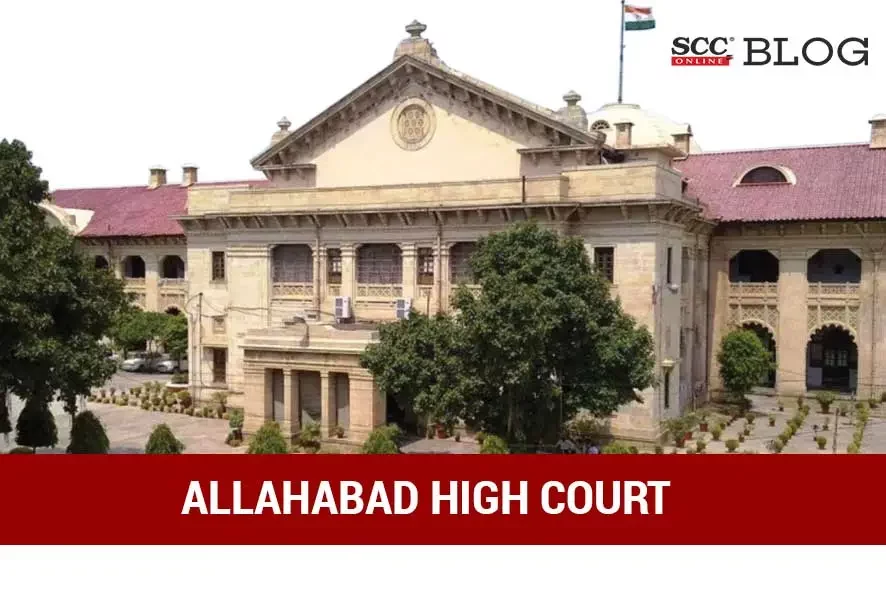Allahabad High Court: In a writ petition seeking to put forth a proposition that against an ex parte order passed in proceedings under Section 24 of U.P. Revenue Code, 2006, (‘Code’)the remedy of a statutory appeal being available, a recall application would not be maintainable at the behest of a non-party, Dr. Yogendra Kumar Srivastava, J. has held that against ex parte order passed in a proceeding under Section 24 Code, a recall application cannot be held to be not maintainable, particularly when the recall is being sought by a person, who as per the scheme of the Act and the Rules made thereunder, would be a necessary party to the proceeding, particularly in a case where an ex parte order has been made non appealable by virtue of the bar contained under Section 209(h) of the Code.
The Court took note of Section 24 of the Code which relates to disputes regarding boundaries. The procedure about the settlement of boundary disputes is provided under Rule 22 of U.P. Revenue Code Rules, 2016. The Court said that Rule 22 of Rules 2016 describes the procedure to be followed by the revenue officials in respect of matters related to settlement of boundary disputes under Section 24.
As per the Court, the scheme of the Code with regard to the settlement of boundary disputes, indicates in unambiguous terms that a tenure holder of the contiguous plot would be a necessary party in the proceedings having a right to submit objections and also a right to be heard before an order is passed, confirming the demarcation report and concluding the proceedings. Further, it said that Section 209 of the Code contains a bar against certain appeals, and in terms of clause (h) thereof, an order passed ex parte has been made non appealable. The proviso to Section 209 gives a remedy to any party aggrieved by an order passed ex parte to move an application for setting aside such an order.
The Court said that the private respondents, in the instant case, being tenure holders of the adjoining contiguous plots, would be necessary parties as per the scheme of the Act and the procedure specified under Rule 22. Therefore, in the event the order relating to demarcation has been passed ex parte against the said tenure holders, they would necessarily have to be held, to be covered within the expression ‘party aggrieved’, under the proviso to Section 209, and would be entitled to move an application for setting aside of such ex parte order.
The Court also said that the procedure prescribed under Rule 22, does not give a choice to the party applying for demarcation to not make the tenure holder of the contiguous Gata a party to the proceedings. Rather the scheme of the Act and the Rules mandates that a tenure holder of adjoining contiguous Gata or any other such affected person, would necessarily have to be made party to the proceedings.
Thus, the Court said that merely for the reason that the private respondents were not made a party to the proceedings despite being tenure holders of the adjoining plots, cannot lead to the conclusion that they would not be ‘affected parties’ or would not be covered within the meaning of the expression ‘party aggrieved’, so as to seek recall of the order passed ex parte.
The Court said that the distinction between a review and a recall petition is well established, as it is a fundamental principle of natural justice and a basic canon of jurisprudence that no adverse orders should be passed against a party without grant of an opportunity of hearing and against an order passed ex parte, the person concerned would have a right to seek recall.
The Court said that Rule 22 of Rules 2016, contains a specific mandate that a tenure holder of adjoining contiguous plots would be a necessary party in the proceedings for division of holdings under Section 24. It further enjoins upon the revenue authorities to ensure that notice is to be issued to such party prior to initiation of proceedings for demarcation, and further, upon any objection being raised, the said tenure holder is to be granted an opportunity of hearing before a final order is passed.
Therefore, the Court said that in the present case the revenue authorities have proceeded to pass an order ex parte without grant of notice or opportunity to the affected party, thus the revenue authority would not be precluded from exercising the power to recall its order to correct the procedural defect, for doing justice between the parties.
Placing reliance on Kapra Mazdoor Ekta Union v. Birla Cotton Spg. and Wvg. Mills Ltd., (2005) 13 SCC 777, the Court held that the power to set aside an ex parte order would amount to a ‘procedural review’, which is inherent or implicit in every court or Tribunal and is distinct from the power to grant a ‘review on merits’
Therefore, in the present case, where the scheme of the Act and the Rules specifically mandate giving notice to the tenure holders of adjoining contiguous plots, and the order passed by the revenue authority is without notice or opportunity, the parties affected would not be precluded from invoking the power of procedural review.
Thus, the Court said that the private respondents in the instant case being tenure holders of adjoining contiguous plots and, therefore, necessary parties as per Rule 22 of Rules 2016, and the order in proceedings under Section 24 having been passed ex parte against them, the said respondents cannot therefore be precluded from invoking the inherent power of the court to seek recall of the order passed in proceeding under Section 24 of Code, 2006.
[Tarkeshwar v. State of UP, 2023 SCC OnLine All 497, Order dated 25-07-2023]
Advocates who appeared in this case :
Counsel for Petitioner: Advocate Madan Ji Pandey;
Counsel for Respondent: Chief Standing Counsel Sudhir Bharti.







